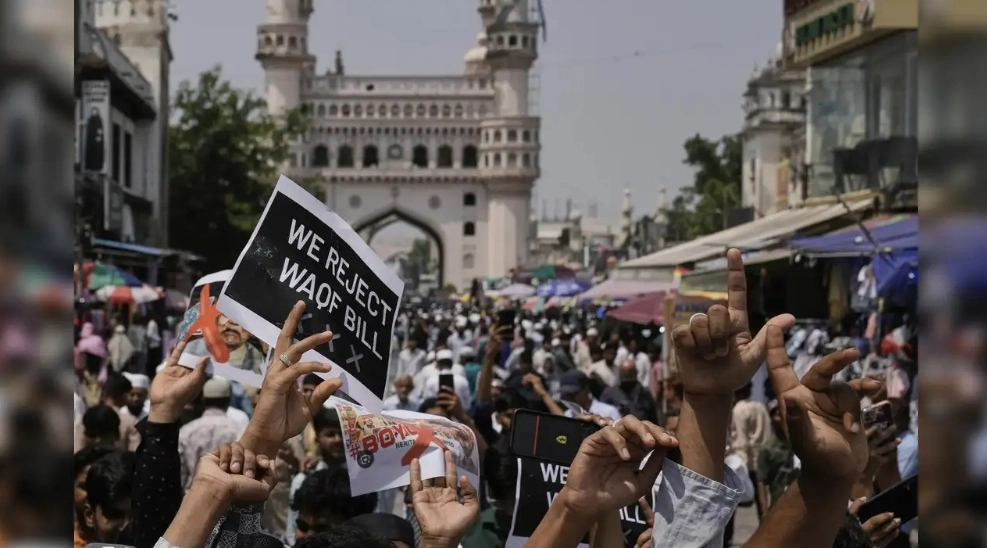What Is 'Waqf by User' And Why It Has Become The Focal Point In Supreme Court's Ruling

The
Supreme Court on Thursday ordered a status quo on all existing
waqf properties - including those recognised under the concept of "
waqf by user" - until further notice. A day earlier, the apex court had questioned the Centre’s move to eliminate "waqf by user" from the Waqf Amendment Act, 2025, warning that such a change could potentially erase thousands of longstanding religious properties across India of their legal status. But what exactly is "waqf by user," and why has it become the focal point of this legal debate?
What Is "Waqf By User"?
The practice of 'Waqf by user' essentially classifies property, such as a mosque, dargah, graveyard, or community kitchen, as waqf if it has been used for Islamic religious purposes for a long time, even without formal documentation.
The "waqf by user" concept was legally recognised through court rulings and codified in the Waqf Amendment Act, 2013, passed by the UPA government. This concept allowed properties to be recorded as waqf even in the absence of documentary proof, based on community usage and long-standing public acceptance.
What Is The Meaning Of 'Waqf'?
Waqf refers to properties dedicated exclusively for religious or charitable purposes under Islamic law, and any other use or sale of the property is prohibited. Waqf means that the ownership of the property is now taken away from the person making Waqf and transferred and held by Allah. ‘Waqf’ is a person who creates a waqf for the beneficiary. As Waqf properties are bestowed upon Allah, in the absence of a physically tangible entity, a ‘mutawalli’ is appointed by the waqf, or by a competent authority, to manage or administer a Waqf. Once designated as waqf, the ownership is transferred from the person making the waqf (waqf) to Allah, making it irrevocable.
Supreme Court's Ruling
The Chief Justice of India, Sanjiv Khanna-led bench questioned the Centre on how waqf properties, which have been established through continuous religious or charitable use but lack formal documentation, will be treated under the new law. "How will you register these waqfs by user? What documents will they have? It will lead to undoing something. Yes, there is some misue. But there genuine one also, " the court observed.
Ordering status quo on all existing waqfs, including those declared under 'waqf by user' until further notice. The three-judge bench has sought responses from the Centre, all states, and respective waqf boards within 7 days. The next hearing has been scheduled for May 5.
Solicitor General Tushar Mehta assured the court that no new appointments will be made to the
Waqf Board or Council during this period, and waqfs already registered, including those declared via notification or gazette, will not be de-notified.
The court has not specified a next hearing date but directed that counter-replies be filed within 5 days of receiving responses. The matter, which revolves around the contentious “waqf by user” provision, will remain under judicial scrutiny until further proceedings. The interim status quo marks a pause in administrative action on waqf properties nationwide.
 The Supreme Court on Thursday ordered a status quo on all existing waqf properties - including those recognised under the concept of "waqf by user" - until further notice. A day earlier, the apex court had questioned the Centre’s move to eliminate "waqf by user" from the Waqf Amendment Act, 2025, warning that such a change could potentially erase thousands of longstanding religious properties across India of their legal status. But what exactly is "waqf by user," and why has it become the focal point of this legal debate?
The Supreme Court on Thursday ordered a status quo on all existing waqf properties - including those recognised under the concept of "waqf by user" - until further notice. A day earlier, the apex court had questioned the Centre’s move to eliminate "waqf by user" from the Waqf Amendment Act, 2025, warning that such a change could potentially erase thousands of longstanding religious properties across India of their legal status. But what exactly is "waqf by user," and why has it become the focal point of this legal debate?